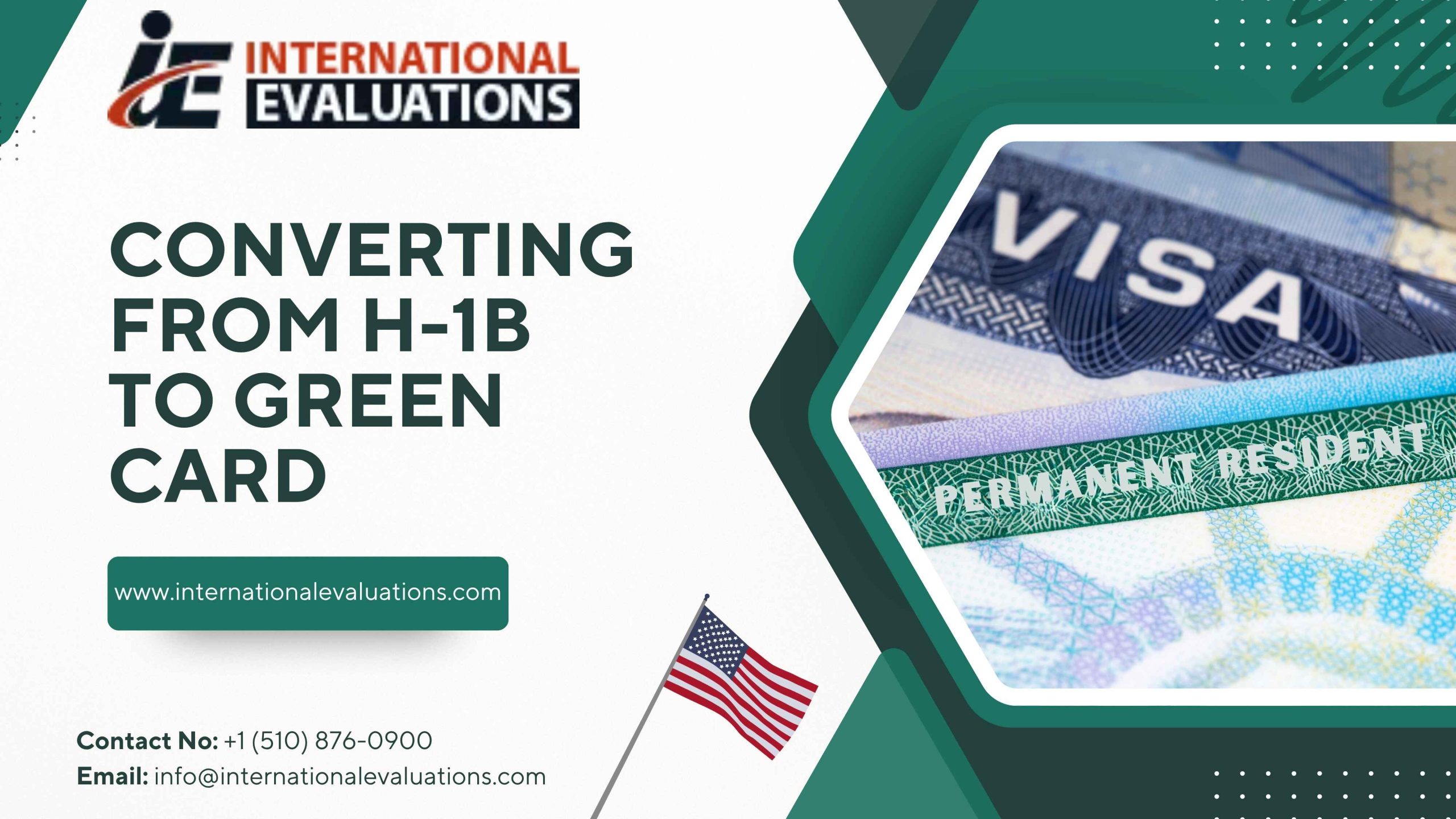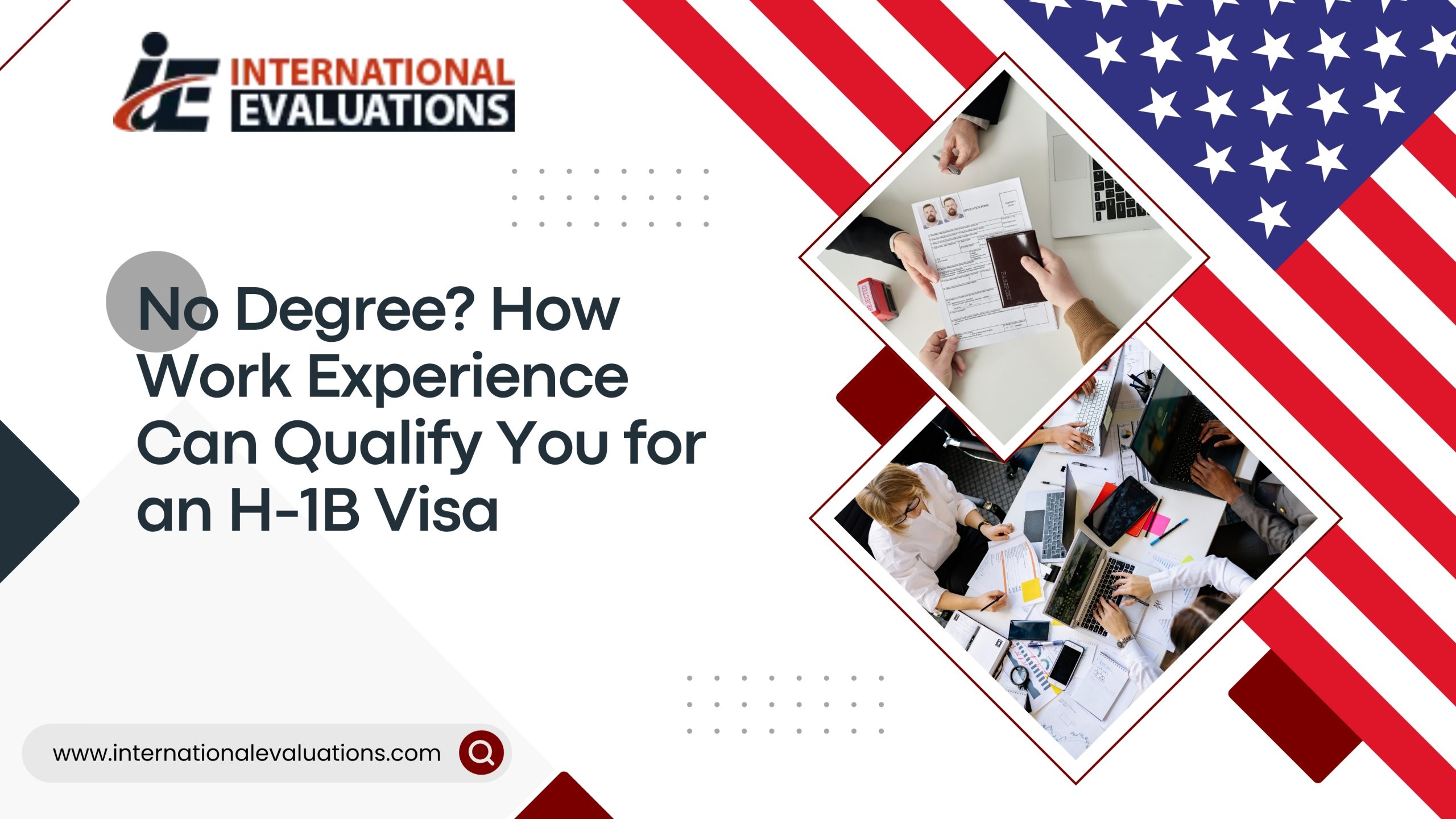As U.S. immigration policies continue to evolve, the USCIS (U.S. Citizenship and Immigration Services) is raising the bar on documentation and compliance in 2025. Whether you’re an international student, a skilled professional, or a business expert seeking a U.S. work visa—understanding the updated standards is crucial.
Delays or denials often happen not because you’re unqualified, but because the documents don’t meet USCIS expectations. Here’s what you need to know:
1. Your Foreign Degree Must Be Equal to a U.S. Degree
To qualify for popular work visas like the H-1B, USCIS requires proof that your foreign degree is equivalent to a U.S. bachelor’s (or higher) degree.
- USCIS does not accept self-assessments or employer statements.
- You must submit an official credential evaluation from a qualified agency that understands USCIS standards.
2. Work Experience Can Help—But Must Be Properly Documented
Don’t have a four-year degree? Don’t worry.
USCIS allows 3 years of relevant professional experience to count as 1 year of academic education.
This means your experience in the industry may bridge the gap, but only if properly presented in a format USCIS recognizes.
3. Evaluations Must Follow Strict USCIS Guidelines
Your evaluation report should clearly state:
- The U.S. equivalent of your degree (field and level)
- The status of your educational institution
- That it follows USCIS, AACRAO, and Department of Labor standards
Avoid generic reports. You need a custom evaluation that matches your specific job or visa type.
4. Expert Opinion Letters: A New USCIS Expectation
In 2025, Expert Opinion Letters have become essential—especially for:
- Specialty jobs (H-1B)
- Exceptional talent (O-1 or EB-1)
- National interest cases (EB-2 NIW)
These letters must be:
- Written by credible experts (like university professors)
- Detailed, linking your skills, experience, and work directly to the visa requirements
- Supported with strong evidence (e.g., publications, patents, awards)
5. Avoid Delays with USCIS-Ready Documents
One of the biggest reasons applicants receive RFEs (Requests for Evidence) or rejections is because:
- Documents are in the wrong format
- Critical information is missing
- Letters are too generic
Tip: Work with a credential evaluation service that knows immigration—not just academics.
Why Attorneys and Petitioners Rely on Our USCIS Compliance Expertise
From seasoned immigration lawyers to independent petitioners, understanding and meeting USCIS’s evolving standards is critical for EB2-NIW petition success. Here’s what sets winning cases apart in 2025:
- Up-to-Date Regulatory Insight – USCIS adjudication trends shift yearly. Staying informed on the latest policy memos, precedent decisions, and officer training guidance ensures every submission meets current expectations.
- Precise Evidence Alignment – Each claim in your petition must map directly to statutory and regulatory criteria. From demonstrating substantial merit to proving national importance, precision in language and evidence is key.
- Expert-Backed Credibility – Leveraging credentialed specialists in STEM, business, healthcare, and social sciences strengthens the evidentiary weight of your petition, especially in niche or highly technical fields.
- Structured for USCIS Review – Formatting, sequencing, and wording should be optimized for adjudicator clarity, following proven models that meet evidentiary burdens while avoiding unnecessary complexity.
- Track Record-Driven Strategies – Attorneys with a history of turning RFEs into approvals know how to anticipate concerns before they arise, increasing the chances of first-round success.
Whether you’re representing clients or guiding your own petition, mastering these 2025 USCIS standards will give your case the clarity, authority, and compliance needed to stand out — and get approved.
Conclusion: Trust International Evaluations for USCIS Success
If you’re planning to study, work, or establish your career in the U.S. in 2025, your success depends on the quality of your documents. From degree evaluations to expert opinion letters, everything must be USCIS-compliant. That’s why thousands choose International Evaluations. They specialize in:
- Credential Evaluations tailored for H-1B, O-1, EB-2 NIW, and more
- Work-experience equivalency assessments
- Expert Opinion Letters that meet USCIS expectations
Let your American dream move forward—with accurate documentation and expert support. Choose International Evaluations.








